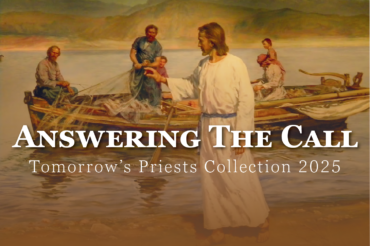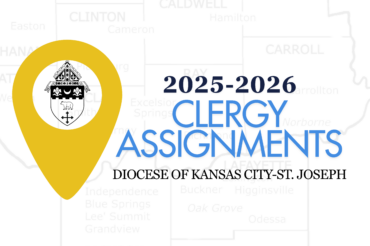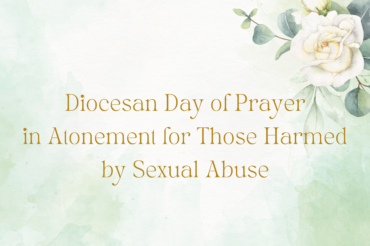Teach Your Children Well
“You, who are on the road must have a code that you can live by. And so become yourself because the past is just a good bye. Teach your children well . . .” From the song, Teach Your Children Well by Crosby, Stills, Nash & Young
One of the most important duties of parents is to teach their children. The Catholic Church notes that parents are “the first and foremost educators of their children. Their role as educators is so decisive that scarcely anything can compensate for their failure in it” (Familiaris Consortio, “The Role of the Christian Family in the Modern World,” No. 36).
This role of parents as teachers is especially significant when it comes to faith and a relationship with God. Children are naturally religious—has anyone else noticed this? Perhaps it is because they have not had much time to be propagandized by the world; perhaps it is that they are still pure in heart. Even Jesus implicitly acknowledges this and teaches that unless we become like children we will not enter the kingdom of heaven (cf. Mt 18:3). Parents who do not educate their children in faith, in prayer, in a relationship with God, neglect them and place them in danger.
The window of opportunity in which to fulfill this duty is pretty small, and it begins in infancy. Saint John Paul II taught that the first elements of catechesis from parents “will perhaps be no more than a simple revelation of a good and provident Father in heaven to whom the child learns to turn its heart. The very short prayers that the child learns to lisp will be the start of a loving dialogue with this hidden God whose word it will then begin to hear. I cannot insist too strongly on this early initiation by Christian parents in which the child’s faculties are integrated into a living relationship with God. It is a work of prime importance. It demands great love and profound respect for the child who has the right to a simple and true presentation of the Christian faith” (Catechesi Tradendae, “On Catechesis in Our Time,” No. 36).
The following years of childhood are also important, but they are built onto this first introduction. This is the first opportunity for parents to be evangelizers, that is, Christian witnesses to another person; in this case, their own child. They are in a unique and advantageous position to do this. No one loves the child more than the parents, and no one is more trusting of the parents than the child. And what could be a greater gift for a parent to give a child than to introduce the child into a living relationship with God? There is no greater gift that a parent can give.
The starting place is prayer, the dialogue with God who is hidden. And, in the Catholic world of sacraments and sacramentals, this can be aided with art and stories. Along with the prayer and the stories, the “commentary” of the parents is essential, because there will always be questions! This pattern should not end in infancy. If parents set this prayer and dialogue pattern early it will carry through childhood to adolescence and into young adulthood. The conversations continue and the questions get more complex, but the “classroom” of the family is meant to continue through all these years. Conversations about faith in the family should not be rare, but frequent. As children mature, this freedom to reflect together can find great benefit when a topic comes up at school or in a movie or television show. The parents have set the stage to reflect on everything in the child’s life through the lens of faith and the relationship with God.
I know several families that have mastered this “art.” For example, when certain “lifestyles” are glamorized on television or the news, the parents use it as a teaching moment as to why Christians do not live that way. They reinforce their child’s identity and capacity to live “the truth in love” (Eph 4:15).
What most parents find is that this process affects them profoundly too. The questions of their children, the reflection on faith, the prayer in common, changes the parents along the way. On the road of life, the family finds they are like the disciples on the Road to Emmaus: that as they were discussing the Scriptures, praying together, worshiping at Mass together, serving together . . . Jesus was in their midst all along.
+ Bishop James Vann Johnston, Jr.
Catholic Key, June 16, 2017 issue





